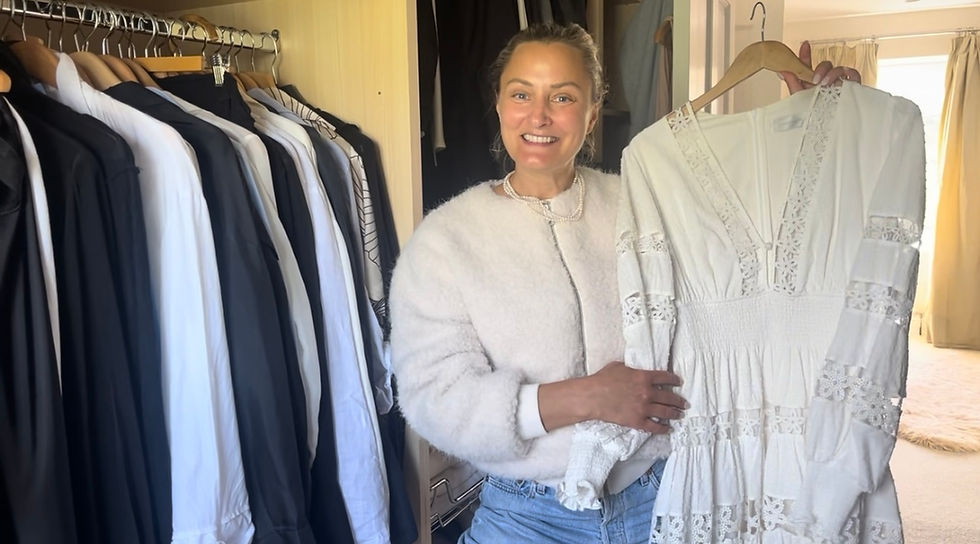"Creating Change, Not Blame: Why Men Must lead the Conversation on Gender Violence"
- niamhhatfield
- May 14, 2025
- 3 min read
By Niamh Hatfield

“Men will view this [‘not all men, yes all men’] as an accusation towards them and immediately switch off.”
Global scale of violence against women: An estimated 736 million women—almost one in three—have been subjected to physical and/or sexual intimate partner violence, non-partner sexual violence, or both at least once in their life (UN Women, 2024).
A White Ribbon panel featuring Token Man's Daniele Fiandaca, held on November 28th, 2024, highlighted the need for men to take responsibility in creating a safer environment for women. However, he stressed that this cannot be achieved through accusatory language towards men, as that only fosters defensiveness and disengagement.
Fiandaca emphasised that change will come when men are encouraged to engage, not blamed for the issue. “The more men we get in this conversation, the more change we will make,” he said. The discussion highlighted that real progress can only happen when men are supported as allies, not viewed as the problem.
Sal Naseem, Assistant Director for Insight Policy & Strategy at Birmingham City Council, reinforced that productive discussions on gender violence require open, non-judgmental spaces, unlike social media, which amplifies anger and division.
“Men will view this [‘not all men, yes all men’] as an accusation towards them and immediately switch off,” he stated. Accusatory language risks disengaging men, making it harder to foster understanding; Instead, women must encourage conversations that invite participation.
To create a positive environment, Sal emphasised that men must listen, learn, and contribute to solutions, replacing shame with empathy and accountability. Only through understanding and allyship can we dismantle the systems that perpetuate gender violence.
The conversation is not about accusing men, but about creating a space where they can understand why women feel the way they do towards men. Harriet Waley-Cohen, a Diversity, Equity, and Inclusion Facilitator, echoes this statement, “The harsh reality is that women’s fears are not imagined—it’s grounded in lived experiences with male violence, harassment, and discrimination, increased by inadequate legal protections. This leads to a constant wariness.”
Harriet adds, “It's not an accusation saying every man is dangerous, it’s recognising women's lived experience.” Many women don’t feel safe, even in spaces that are supposed to protect them, such as their home, the police, or the courts.
Harriet used the "Man vs. Bear" analogy to illustrate how many men lack awareness and empathy for women’s experiences. Men often become defensive when discussing women’s safety, dismissing their concerns as irrational. Fathers teach their daughters to be cautious of men, yet when women express similar fears, they’re told they’re overreacting. This contradiction comes from men’s reluctance to acknowledge women’s lived experiences.
A key moment on The Graham Norton Show with Saoirse Ronan highlighted the challenge of discussing gender violence. When Saoirse Ronan said, "this is what women have to think about day to day," referring to the need to protect ourselves while walking home, the men on the show fell silent instead of engaging.
While this silence was celebrated in the media, Fiandaca emphasized that silencing men is counterproductive: “We can’t silence men because we need them to speak up.” Silence blocks crucial conversations and prevents progress; for real change, men must be able to speak openly without shame or awkwardness.
While real change starts with men, women must recognise that using accusatory language or labelling all men as bad will only push them away and shut down the conversation. Instead of silencing men or using harmful hashtags, we need to create an open dialogue where men can listen to and understand women’s experiences. Only through this approach can we shift mindsets and inspire meaningful change.



Comments